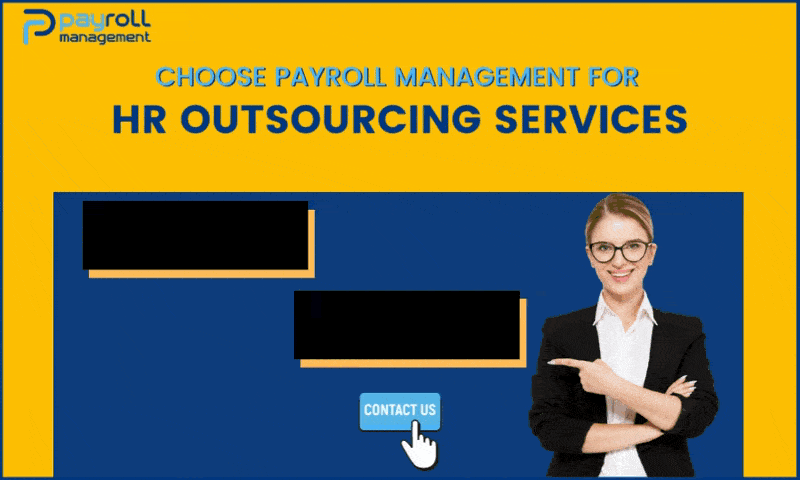When it comes to the hiring process, many business owners are under the false impression that they can do it all on their own. While this may be true in certain areas, it’s certainly not true when it comes to handling payroll, benefits, and anything related to human resources.
Thankfully, there are affordable outsourced HR solutions on the market like Payroll Management that take much of the burden off your shoulders, saving you time and money in the long run. By looking at this article, you’ll learn what an outsourced HR service can do for your business, including how it benefits both you and your employees.
What is HR Outsourcing?

Human resources (HR) outsourcing, also called staffing or recruitment outsourcing, occurs when an organization hires a specialized company to handle its staffing needs. Outsourcing is designed to help companies save money and improve efficiency.
Today, most small-to-medium-sized businesses (SMBs) can’t afford to hire in-house employees for their human resources departments. Instead, they depend on an outside firm or service provider. For example, many software companies outsource their HR services by hiring a specialized HR outsourcing firm for contract work instead of in-house recruiters. An outside agency offers access to workers across various industries and specialties at lower costs than hiring full-time staff members would entail.
Benefits of an Outsourced HR Solution
Many business owners are uneasy about bringing an internal HR manager or specialist on board. On one hand, it can feel like you’re using precious resources to take care of something you could do yourself. On another, it can feel like you’re passing off responsibilities that belong to your business and not with an outside party. Both concerns are legitimate, but there are also several benefits to hiring a professional service to help with things like payroll, employee training, and compliance work.
Outsourcing human resources give your company access to industry-specific expertise without having to pay for full-time employees, which can save money in addition to freeing up time and attention that belongs inside your business rather than outside it.
While outsourcing may seem expensive at first glance, consider what you might spend if your business gets hit with a major fine because it didn’t have compliant policies in place—you might find that paying someone else to handle HR is less expensive in the long run.
If you need more convincing, ask yourself these questions:
#1. What would happen if I lost my best worker?
#2. Would I know how to replace them?
#3. If so, would I be able to do so quickly enough?
#4. How much would it cost me if I had to hire a replacement and train them from scratch?
#5. What happens when my best workers leave me?
#6. Are they taking their knowledge with them or will they stay put until they’ve found new jobs elsewhere?
#7. How much does turnover cost me every year in lost productivity, new hires and training costs?
If you aren’t sure how to answer these questions or where your weaknesses lie as an employer, then consider investing in outsourced services that help ensure your success.

What Makes an Ideal Outsourced Provider?
Many of you have asked for recommendations for outsourced providers. And I can tell you with certainty that it’s because you’re seeking out quality, not just any service. That’s fantastic! With all of your options for outsourcing HR, there are a few key qualities to look for in an ideal provider:
1) Specialization: Are they focused on providing HR outsourcing services, or do they offer multiple services?
2) Experience: How long have they been providing these services?
3) Reputation: Do they have clients who recommend them based on their outstanding results?
4) Cost-effectiveness: Are their fees affordable and justified by value provided?
Only once you’ve narrowed down your list to those providers who satisfy these criteria should you begin digging deeper into each of them.
Common Misconceptions About Outsourcing Your HR Department
Some businesses mistakenly think hiring an outside firm will cost them dearly. However, in most cases, outsourcing your HR department costs about 20 percent of what it would to hire an in-house person for an equivalent position.
For example, if you had previously budgeted $100,000 for a new full-time employee’s salary and benefits, that amount can usually be reallocated to pay an outsourced firm $20,000—leaving you with $80,000. That $80K is what you’ll actually save by outsourcing your workforce management; about half of that goes toward federal and state payroll taxes that would have been paid on a full-time employee’s salary and benefits.
How Can You Find the Right Outsourced Partner?

To find a partner that’s right for your business, you’ll want to start by developing what you need and not just what you want. What does that mean? It means looking at roles, responsibilities, and services, rather than specific vendors or providers. If you have all of your requirements laid out in front of you, it will be easier to identify potential partners with relevant experience.
Once you’ve found someone that meets your needs and requirements on paper, schedule time to meet with them in person. Look into their past work experiences and talk about how they would manage processes for your company. Do they have relevant experience? Are they easy to work with?
Conclusion
One of your most important tasks as an entrepreneur is to make sure you’re protecting your business from pitfalls. Business owners who fail to address their HR needs are on thin ice, and it only takes one (big) slip up for things to go south.
If you’re not happy with your current approach to hiring or benefits administration, consider outsourcing. It’s time for you to focus on what really matters: making sure your company succeeds. Allow professionals that have been in the industry for years to do what they do best: administer valuable services efficiently and cost-effectively.







